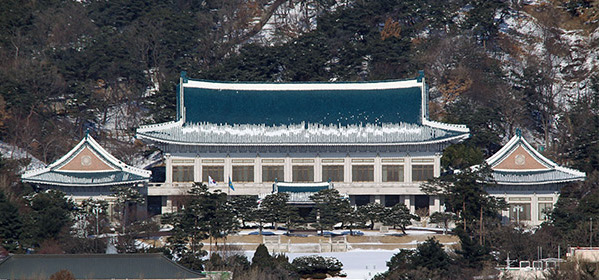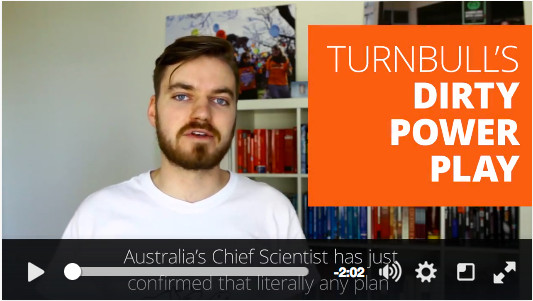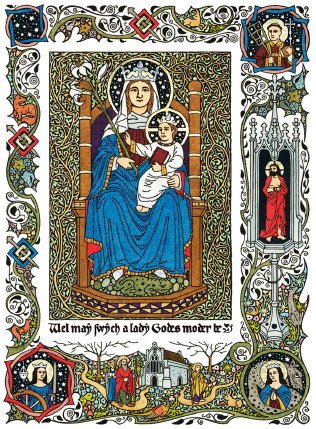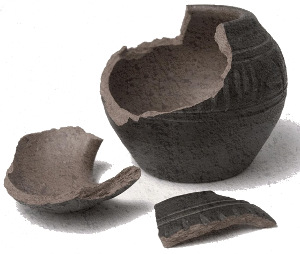May Francis live long and prosper.
Monthly Archives: December 2016
Blue House blues
South Koreans MPs reflected the national will when 230 of the National Assembly’s 300 members voted yesterday in a secret ballot to impeach the President, Ms Park Geun-hye, on accusations of influence-peddling, abuse of power, dereliction of duty, and other faults.
This victory for opposition parties and independents also relied on dissenters from the ruling Saenuri party to reach the required two-thirds majority. As The Economist notes, "today’s proceedings were remarkably civil and swift. MPs queued to cast their votes; many photographed their marked ballot papers to share on social media with their constituents. The atmosphere outside the National Assembly, where protesters had gathered, was festive in the run-up to the vote."
The Constitutional court has six months to decide whether there is sufficient actual evidence of wrongdoing to justify the President’s permanent dismissal, but a prolonged power vacuum would be harmful and a quicker decision is expected. Meanwhile the Prime Minister, Mr Hwang Kyo-ahn, becomes by law the interim President. If Ms Park is dismissed, there must be a fresh Presidential election within a further two months. The Prime Minister’s role is largely symbolic, real power being with the President. Now Mr Hwang has an opportunity to step up. Ban Ki-moon has been mooted as presidential candidate for the Saenuri, but it is uncertain whether he could be ready if there were an early election.
Meanwhile Ms Park will endure a solitary and wintry residence in the Blue House, Korea’s equivalent of the White House. She has made apologies, but they have not been enough.
Climate cowardice
Rejoicing with northern hills
On Thursday 8th December 2016, my local church, St Philip’s O’Connor welcomed Bishop Matt Brain, ministers and guests for the induction of Martin Johnson as its 11th Rector.
With Martin, we welcomed his wife Susan, and daughter Jemma. (Martin and Susan also have a son, Thomas, who lives interstate.)
We had long parcticed “Hills of the North”, which Martin had requested. I took some dodgy photos from the very back of the church, where I was ensconced in the choir seats as a bass—too far from the action for proper indoor photography.
Photos
After the processional entrance and opening greetings, Army Chaplain Sarah Gibson presents Martin
(who had previously also been an Army Chaplain)
Bishop Matt brings Martin to us, and leads in prayer
The three Parish Wardens welcome Martin,
after which Martin and the people make promises to God and each other.
The symbols of ministry.
Folks ready to present the symbols.
(Two young people are hidden from the camera!)
The symbols are presented




Archdeacon Erica reads Martin’s licence
As Bishop Matt presents the licence to Martin, we are ready to applaud loud and long.
The Rector of St Philip’s prepares to lead his congregation in prayer.
Parish Warden Rosemary, and Chair of Parish Council Ian, welcome Martin.
The service
Evening prayer, Second order, A Prayer Book for Australia.
Ministers:
The Right Reverend Dr Matt Brain (Presiding and Preaching).
The Venerable Dr Erica Mathieson (Archdeacon).
Chaplain Sarah Gibson, Australian Army.
The Reverend Linda McMinn (Area Dean).
The Reverend Robin Moore (Deacon).
Jemma Johnson and Jack Adams (Readers).
Denise Manley JP, Dr Rosemary Knight, Roger Sharp (Parish Wardens).
Ian Cousins PSM, Chair of Parish Council.
Visiting clergy and guests.
Choir and musicians, directed by Colin Forbes.
Parishioners of St Philip’s,
and especially … the 11th Rector of St Philip’s, the Reverend Martin Johnson.
Readings:
Isaiah 7.10-14, Luke 1.26-38.
Music:
Lo! he comes with clouds descending. Charles Wesley (1707-88).
O breath of life, come sweeping through us. Elizabeth A. P. Head (1850-1936).
Psalm 98, setting by Rosalie Bonighton (Cantor: David Tscharke).
J.S. Bach. Jesu, Joy of Man’s Desiring, from cantata Herz und Mund und That und Leben (BWV 147). English words, R. Bridge.
Come, thou long-expected Jesus. Charles Wesley, 1707-88.
Hills of the North, Charles E. Oakley (1832-1865) and Martin Shaw (1875-1958).
Colin Forbes. The St Philip’s Fanfare.

Immaculate misconceptions
For Roman Catholics, 8th December is the solemnity of the Immaculate Conception of the Blessed Virgin Mary. Anglicans do not need this event to have been "immaculate", but in a minor festival today, do note that it happened.
In The Bite in the Apple on 3 December 2015, Nancy Rockwell wrote on "No More Lying About Mary."
It’s Advent, and the same old lies about Mary are slipping over pulpits and out of parish letters, Christmas cards, public prayers, TV holiday movies, and late night comics’ jokes.
The subjugation of Mary, the maligning of her as meek, mild, and mindless, has been harmful to millions.
Hiding within the wonder of Christmas are a thousand years of doctrinal female subjugation, doctrines that, like tinsel, are dripped all over the season of Christmas. In the midst of the celebration of Wonderful Life, these malicious ideas keep women from feeling empowered, invited to be strong, and urged by God to imagine new ways to live, as Mary of Nazareth did, who mothered God’s redemption of the human world. [&hellip]
Mary, wanted by God, according to the angel, for her bold, independent, adventuresome spirit, decides to bear a holy child—for a bold agenda: to bring the mighty down from their thrones; to scatter the proud in the imagination of their hearts, to fill the hungry with good things and send the rich empty away. This is Mary: well-spoken, wise, gritty. […] She is determined, not domestic; free, not foolish; holy, not helpless; strong, not submissive. She beckons women everywhere to speak out for God’s justice, which is waiting to be born into this world.
Indeed so.
Why, then. I wonder, is so much other silliness, heresy, delusion, tackiness and downright untruth about Mary? The “Immaculate Conception” and the “Assumption” are at the peak of this card-castle of foolishness. A 2005 joint statement by the Anglican – Roman Catholic International Commission (ARCIC), Mary: Grace and Hope in Christ, helpfully shows that the two communions have much in common in their appreciation of this remarkable woman.
"Roman Catholics, however, are required to believe the teaching defined by Pope Pius XII in 1950: ‘that the Immaculate Mother of God, the ever-Virgin Mary, having completed the course of her earthly life, was assumed body and soul into heavenly glory.’ [para. 58] and that, as determined in 1854, "the most blessed Virgin Mary was, from the first moment of her conception, by a singular grace and privilege of almighty God and in view of the merits of Christ Jesus the Saviour of the human race, preserved immune from all stain of original sin."[para 59]. "The particular circumstances and precise formulations of the 1854 and 1950 definitions have created problems not only for Anglicans but also for other Christians." [para 61] — an understatement indeed.
Massive and glorious cathedrals are devoted to these heresies: The glorious Cathedral of Our Lady of Chartres is an eminent example. Travelling through much of Europe, one finds places littered with depictions of Mary: much more so than of Jesus himself. People flock to shrines where she is supposed to have appeared, such as the National Catholic Shrine of The Basilica of our Lady of Walsingham in England, and the nearby Anglican Shrine of Our Lady of Walsingham — which has connections even in Australia.
The Shrine is where in the year 1061, a Saxon noblewoman, Richeldis de Faverches is reputed to have had vision in which was taken by Mary to be shown the house in Nazareth where Gabriel had announced the news of the birth of Jesus and to have been asked by Mary to build replica of that house in Walsingham.
Sigh.
Carols, Australian and otherwise
 With Christmas in the shops, as usual much too soon, permit some words on Christmas carols.
With Christmas in the shops, as usual much too soon, permit some words on Christmas carols.
On Christmas Eve some years ago, in the Canberra Times, Australian composers including Peter Sculthorpe and Stephen Leek bewailed Australia’s “fixation” on the Northern Hemisphere’s ‘white Christmas’ — especially in music — as “the ultimate cultural cringe”.
Well, yes and no. I would certainly like to be utterly rid of ‘red-nosed reindeers’ and ‘dashing through the snow’. Christmas cards with snow scenes are really silly in Australia. But for this Anglo-Celtic Australian, glorious Christmas carols such as Now we joy in this fest and Joy to the world are not ‘cultural cringe’ but cultural heritage.
For years, Leek has been trying to do something about it. A few year ago, his carol Under the Stars, written with lyricist Anne Williams, was published and aired. It celebrates the Australian tradition of carol singing in the open at night as well as the Christmas message of peace, love and compassion. The carol, commissioned for the ABC’s Limelight magazine, had one airing on ABC Classic FM and then nothing. Leek was disappointed but not surprised. Australian carols have long struggled to find their way into the popular consciousness, he says.
The most famous Australian carols are the series of fifteen by William James, composer, and John Wheeler, lyricist, written between 1948 and 1961. Both were employees of the ABC—James as federal director of music and Wheeler as a scriptwriter in general programming. The carols ring with Australian image tree ferns and Christmas bush; brolgas and wood larks; red dust and yellow moons. Favourites such as The Three Drovers, Carol of the Birds and The Silver Stars are in the Sky have remained a subtle presence in an Australian Christmas and were once learned by generations of Australian schoolchildren. But not so today, Leek says, as newer generations are less familiar with them. “The choruses are catchy but now seem dated. And the arrangements are less suited to a contemporary style of choral singing.” Leek has since used some themes of these original carols and expressed them in his own musical language. One of the reworked carols, Southern Cross, features in the new edition of the Oxford Book of Carols…
Only one James and Wheeler song, Christmas Day, has made it into Together in Song, the Australian hymnal used by many churches.
How many other Australian composers have written Christmas carols? There are a few and, as Leek observes, the European tradition is a hard one to break. Ross Edwards’ Five Carols (1967) are unaccompanied motets for choir — Peter Sculthorpe’s Awake Glad Heart (1988) was written for the choir of King’s College, Cambridge. “It’s a setting of verse by 17th century English poet Henry Vaughan and the melody reflects this,” Sculthorpe says. But his earlier carol, Morning Song for the Christ Child (1966), for treble voices set to words by Roger Covell, is, as he describes it, “very much in my own style”.
Anne Boyd’s The Burning Babe (1980) was written at Pearl Beach on the NSW coast, yet its inspiration is an English renaissance one. Set to verses by 16th century Jesuit poet Robert Southwell, it also reflects her strong Anglo-Catholic faith. “I write in my own idiom,” she says. I don’t think of it as a northern hemisphere one. It’s the idiom that is right for the material and which resonates with my own musical style.
So why has a European flavour remained so popular in Christmas carols? Boyd makes an interesting observation: “When carols deal with religious subject matter they tend to go back to pre-industrial Europe.” Sculthorpe has another theory. ” A lot of it is driven by commerce,” he says, referring to the idealised theme of a snow-covered Christmas which has been popular with retailers for over a century.
“Whatever the reason, its frustrating,” Leek says. “A a proud Australian, I don’t understand why we can’t come to grips with this event in our own country. After all, the original nativity scene didn’t happen in the snow. As composers, we have to define what it is to be Australian in all our diversity.
Now I have another theory for the reason Australian carols are not catching on—copyright. The copyright in James and Wheeler’s classics was long owned by the Australian subsidiary of the British Chappell company, but this has now been swallowed up and is now a Warner company. The only edition of James and Wheeler’s carols now in print is published in Miami Florida!
James and Wheeler’s carols are on an ABC Classics CD 446 975-2 by the Sydney Philharmonia Motet Choir. It also includes works by Ross Edwards, Elliott Gyger, Stephen Whittington, Malcolm Williamson, Anne Boyd, Peter Sculthorpe, and Andrew Ford.
No problem?
“If there’s no solution, there’s no problem.” — James Kim.
Terrifying government by cracked pot
Paul Waldman of The Washington Post writes that the selection of retired Lt. Gen. Michael Flynn as National Security Adviser is "Donald Trump’s most terrifying appointment." Flynn has a history of making incendiary and Islamophobic statements that have drawn much crtiticism.
"Donald Trump has gone about picking his Cabinet and senior advisers in much the way one might have predicted. Instead of looking for people with the highest levels of experience, expertise, and competence, he seems to be making his choices based on criteria like who he’s seen on Fox News, or who praised him effusively, or who has a cool nickname. There may be no more dangerous choice Trump has made so far than picking Michael Flynn to be his national security adviser. There are few more important positions in the White House, and few where the wrong choice could have consequences quite as catastrophic. If we contemplate how President Trump might handle an international crisis—which he will face, probably before long—we see just how troubling Flynn’s appointment is. … But to put it plainly, Michael Flynn is a crackpot."
Waldman goes on to give abundant evidence of this.
The national security adviser coordinates policy between the multiple US agencies whose work touches on national security, so that that the president has the best, clearest, and most accurate information with which to make decisions. "For a President Trump’s unique combination of ignorance, inexperience, and impulsiveness, it’s particularly vital to have a national security adviser who can encourage calm and thoughtfulness, and not be distracted by what’s irrelevant or downright false. … When it comes to matters of national security, Donald Trump will not be like other Republicans. He’s likely to be reckless and foolish in ways we can’t yet predict. And people like Mike Flynn reinforce his worst instincts, including his own propensity to believe ludicrous conspiracy theories. … The only way Flynn will be replaced by someone less likely to push us toward some kind of disaster is if Trump decides to push him aside. There’s no indication yet that Trump is inclined to do so. But we had better hope he changes his mind."
Lord have mercy.
A void at the heart of soulless technocracy
In an editorial on 4 December 2016, The Guardian view on Christianity in Britain: neither here nor there, the paper finds there to be "something very strange" going on. "The chairman of the Equality and Human Rights Commission feels he must tell employers it is OK to celebrate Christmas, and that this will not offend unbelievers. The prime minister announces in parliament that of course people should be able to speak freely about their religious convictions. A thinktank argues that there should be a duty of "reasonable accommodation" to religious belief. All these, the paper says, are symptoms of "a deep unease and confusion about the role of Christianity in British life."
The Guardian observes that Britain is largely secular and its population "largely indifferent to distinctively Christian beliefs, with "a growing hostility to the notion of ‘religion’ at all." On the other hand, to claim that Christians who are prevented from discriminating against gay people, for example, are thereby themselves discriminated against, "is hardly convincing."
All that said, "A compassionate society is one that treats its members compassionately. […] More subtly, the values of a society are developed and maintained by its institutions [of which] many will always be religious. It would be stupid and self-destructive to make such groups feel useless and unwanted. The nervousness over Christmas, or even over expressing religious belief, is an absurd expression of a real void at the heart of soulless technocracy.
Just so — in Australia as much as in the United Kingdom.
Come sweeping through us
Thursday, 6th December 2016, will be an important day for our local parish, as we welcome our new minister, the Revd Martin Johnson. The music will include this hymn, which is very much my prayer:
O breath of life, come sweeping through us,
revive your church with life and power;
O breath of life, come cleanse, renew us,
and fit your church to meet this hour.
O wind of God, come bend us, break us,
till humbly we confess our need;
then in your tenderness remake us,
revive, restore: for this we plead.
O breath of love, come breathe within us,
renewing thought and will and heart;
come, love of Christ, afresh to win us,
revive your church in every part.
Revive us, Lord! Is zeal abating
while harvest fields are vast and white?
Revive us, Lord, the world is waiting
equip your church to spread the light.
—Elizabeth A. P. Head, (1850-1936)




